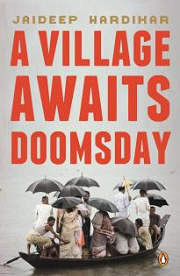Rainfed Agriculture
The state of environmental migration in 2011
Posted on 07 Mar, 2013 05:15 PMEnvironmental degradation & climate change have induced human mobility by creating environmental migrants.
A response to doubts raised by Prof. Yuan on Indian farmer's record paddy yield through SRI method in Bihar
Posted on 04 Mar, 2013 11:13 PMThere is no scientific basis for rejecting these record yields in Bihar as a ‘hoax,’ because there is considerable evidence available that confirms the reported yields. Saying that the Indian government could not confirm the yield *after* the harvest is obviously correct, but it is a mistaken assertion.
An analysis on the performance of System of Rice Intensification (SRI) in 13 states of India- A paper in Economic and Political Weekly
Posted on 27 Feb, 2013 08:10 AMSRI is a new method of paddy cultivation, which uses local/traditional seed and organic compost to increase production.
National Rainfed Area Authority invites applications for the posts of Technical Experts in Water Management and Watershed Development - Apply by April 10, 2013
Posted on 27 Feb, 2013 12:46 AMAbout National Rainfed Area Authority (NRAA)
National Rainfed Area Authority to provide much needed knowledge inputs regarding systematic up gradation and management of country's dryland and rainfed agriculture. NRAA is an advisory, policy making and monitoring body charged with the role of examining guidelines in various existing schemes and in the formation of new schemes.
About the vacancy - Technical expert (Water management) and Technical expert (Watershed development)
One post each of Technical Expert (Water Management) and Technical Expert (Watershed Development) is required to be filled up. In order to ensure the widest possible choice, it was decided that a cross section of Departments, Organisations and Authorities should be approached to seek nomination of candidates for the post.
Some strategies for managing groundwater by Aditi Mukherji, IWMI
Posted on 22 Feb, 2013 09:53 AMGroundwater is essential for India's agricutural economy. However, there is a large variation in the groundwater resources of each region. Some regions are already over-exploited, while others can still tolerate more withdrawal. In her blog 'Waterscapes', Aditi Mukherji discusses the need for regional strategies to manage groundwater economy.
Videos: Resurgence of the ahar pynes - Magadh Jal Jamaat helps revive 2000-year old flood water harvesting systems in Gaya, Bihar
Posted on 13 Feb, 2013 10:34 AMMagadh Jal Jamaat, a loose network of progressive individuals in Gaya has been successfully able to revive over a dozen abandoned water sources and have instilled in people the need to create, clean up and conserve several lakes and ponds in the region.






.png)